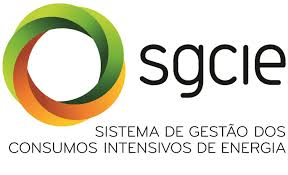We promote the energy efficiency of your company. The SGCIE Energy Audit applies to Energy Intensive Consumer Facilities (CIE)
Scope and Objectives of the Energy Audit
What is the process
- Online registration of Energy Intensive Consumer Facilities;
- Conducting an Energy Audit and its Report;
- Definition of a Plan for Rationalization of Energy Consumption (PREn);
- Delivery (online) of PREn for analysis and approval;
- The approved PREn becomes a Rationalization of Energy Consumption Agreement (ARCE);
- Delivery (online) of biennial Execution and Progress Reports (REP);
- Application of penalties when the targets aren’t accomplished, and the measures provided on ARCE aren’t implemented.
Energy Consumption Rationalization Plan (PREn)
The Energy Consumption Rationalization Plan (PREn) should provide for the maintenance of historical values of Carbon Intensity and establish targets for Energy Intensity and Specific Energy Consumption, which must be respected by the audited entity, considering the time limits established for the reduction of indicators established in the PREn and whose compliance must be validated by the Energy Manager:
- CIE installations with an annual consumption equal to or greater than 500 tep (equivalent ton of oil) and less than 1 000 tep – These facilities are required to carry out energy audits every 8 years and aim to reduce energy intensity and energy-specific consumption by 4% and maintain carbon intensity;
- CIE installations with an annual consumption equal to or greater than 1 000 tep – These facilities are required to carry out energy audits every 6 years and aim to reduce energy intensity and energy-specific energy intensity by 6% and maintain carbon intensity.
To whom the SGCIE Energy Audits apply
The SGCIE Energy Audit applies to Energy Intensive Consumer Facilities (CIE) with annual consumption equal to or greater than 500 tep. Exceptions to the application of SGCIE are:
- Legally autonomous cogeneration facilities;
- Transport companies and companies with their own energy-intensive fleets;
- Buildings covered by Decree-Law 78/2006, 79/2006 and 80/2006, except when integrated in the area of an intensive consumer industrial installation;
- CIE facilities subject to the PNALE (National Plan for The Allocation of CO2 Emission Allowances).
Incentives to promote Energy Efficiency The operator of the installation covered by an Energy Rationalization Agreement (ARCE) can benefit from the following incentives and incentives to promote energy efficiency:
- Financial incentive in the cost of energy audits provided that at least 50% of the measures provided for in ARCE are met;
- Financial incentive in investments made in equipment and systems of management and monitoring of energy consumption;
- Exemption from Petroleum and Energy Products Tax (ISP) for certain fuels.
Made up of technicians with over 20 years of experience, specialized in energy efficiency and in the development and design of energy optimization and production projects through renewable sources
JF DIGITAL ENERGY, LDA Registered Office: Rua Dr. Calado, n.º 26, 1º, 3080-153 Figueira da Foz
Lisbon Delegation: Centro de Negócios da AIP-CCI, Piso 2 sala 19/20 Praça das Indústrias, 1300-307 Lisboa tel: 215 806 066 mail: geral@delab.pt

